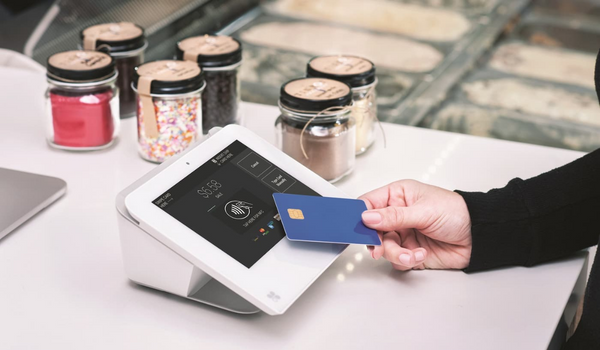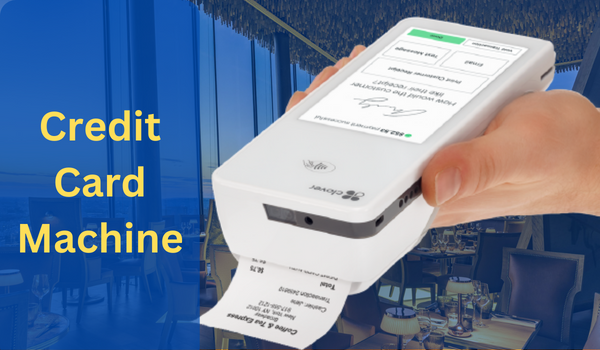
Credit Card Processing Methodology - Overview
Credit card processing has become an essential part of modern business operations. It allows merchants to accept credit and debit card payments from customers, which can increase sales and streamline transactions. However, for those who are new to the world of card processing, understanding credit card processing methodology can be a daunting task. In this article, we will break down the key components of credit card processing and explain how it works. We will also provide tips on how to choose the right credit card processor for your business.
Credit Card Processing Methodology
Credit card processing involves several parties, each with its role in the payment process. Here are the key players:
- Merchant: The business that accepts credit card payments from customers
- Customer: The person who uses their credit or debit card to pay for goods or services
- Credit card company: The financial institution that issues credit cards to customers, such as Visa, Mastercard, or American Express.
- Acquirer: The bank that processes credit card transactions on behalf of the merchant.
- Payment processor: The company that facilitates communication between the merchant, the acquirer, and the credit card company.
Now that we know whom the key players are let's take a closer look at how the payment process works:
The customer makes a payment: The customer presents their credit or debit card to the merchant and authorizes payment for the goods or services they are purchasing.
The merchant initiates the payment: The merchant submits the payment information to the payment processor, which forwards it to the acquirer.
The acquirer processes the payment: The acquirer verifies the payment information and sends it to the credit card company for approval or denial.
The credit card company approves or denies the payment: The credit card company checks the customer's account balance and credit limit to determine if the payment can be processed. If approved, the credit card company sends an authorization code back to the acquirer.
The acquirer notifies the merchant: The acquirer sends the authorization code to the payment processor, which then forwards it to the merchant. This notification confirms that the payment has been approved.
The merchant completes the transaction: The merchant finalizes the transaction by sending the authorization code back to the payment processor, which then forwards it to the acquirer. The acquirer debits the customer's account and credits the merchant's account.
The payment is settled: At the end of the day, the acquirer sends a settlement request to the credit card company, which transfers the funds from the customer's account to the merchant's account. The payment processor deducts its fees from the merchant's account.
While credit card processing can provide significant benefits to businesses, it is essential to remember that it comes with risks as well. Payment fraud is a growing concern for merchants, and the consequences can be severe. In addition to the financial losses associated with fraud, merchants can also suffer reputational damage and legal liability. To protect against payment fraud, it is crucial to take proactive measures such as implementing fraud detection and prevention tools and monitoring transactions closely.
How to Choose the Right Credit Card Processor for Your Business
Now that you have a better understanding of credit card processing methodology, let's talk about how to choose the right credit card processor for your business. Here are some factors to consider:
- Fees: Transaction fees are a significant aspect of credit card processing, as they can impact the profitability of a business. Typically, credit card processors charge fees for each transaction made. This fee is usually a percentage of the transaction amount, plus a flat fee. Some credit card processors may also charge monthly fees, annual fees, or additional fees for specific services, such as chargebacks or international transactions. Be sure to compare fees from different processors and choose one that offers transparent pricing and no hidden costs.
- Security: Security is a critical factor when it comes to credit card processing. Merchants are responsible for protecting their customers' payment information and ensuring that it is transmitted securely. Credit card processors typically offer security measures such as PCI compliance, encryption, and fraud protection. Look for a credit card processor that offers secure payment processing, including PCI compliance and fraud protection
- Integration: Integration is another essential factor to consider when selecting a credit card processor. It is essential to choose a processor that can integrate with your point-of-sale system or e-commerce platform to streamline payment processing and reduce errors. Choose a processor that integrates with your POS system or e-commerce platform to make payment processing more efficient.
- Customer support: Customer support is also a critical consideration when selecting a credit card processor. Merchants should choose a processor that offers reliable customer support, including phone, email, or chat support. This is especially important in the event of an issue or dispute with a payment. Consider a processor that offers reliable customer support preferably one with 24x7 support and the ability to resolve issues quickly.
- Reputation: Choose a credit card processor with a good reputation, as this can impact your business's credibility and customer trust.
Another important consideration when selecting a credit card processor is the type of payment processing model they offer. There are two primary models: flat-rate and interchange-plus. With a flat-rate model, the processor charges a fixed percentage and fee for every transaction, regardless of the type of card used. This model can be convenient for small businesses with low transaction volumes but may not be cost-effective for larger businesses.
In contrast, an interchange-plus model charges a percentage of the transaction amount, plus the interchange fee charged by the credit card company. This model can be more complex but may offer more flexibility and lower costs for businesses with high transaction volumes. It is also essential to remember that credit card processing is not the only payment option available. While credit and debit cards are popular among consumers, some may prefer to use other payment methods such as mobile payments, e-wallets, or bank transfers. Offering a range of payment options can help businesses appeal to a broader customer base and increase customer satisfaction.
In conclusion, credit card processing can be a valuable tool for businesses to increase sales and streamline transactions. By understanding the credit card processing methodology and choosing the right credit card processor, merchants can make payment processing a smooth and efficient process. As you consider different credit card processors for your business, take into account factors such as fees, security, integration, customer support, and reputation. By understanding the methodology, selecting the right credit card processor, and taking proactive measures to mitigate risks, businesses can provide a seamless payment experience for their customers and increase efficiency and revenue.






